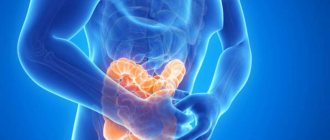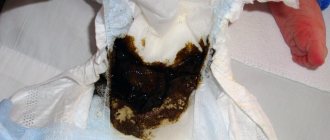Mechanism of occurrence
Most often, belching with an unpleasant odor occurs due to poor nutrition. If it is monotonous and does not contain all the necessary substances, then their balance is disturbed. Synthesis processes change, and other symptoms appear: heartburn, nausea, flatulence, diarrhea.
Belching of hydrogen sulfide occurs with daily consumption of large quantities of the following foods:
- egg;
- tea or coffee;
- meat (red);
- milk and fermented milk products;
- some fruits (avocados, bananas, watermelons);
- beans;
- conservation;
- instant products (fast food);
- seeds and nuts;
- vegetables (tomatoes, garlic, potatoes, broccoli).
In this case, the intestinal microflora breaks down methionine and cysteine. It is these amino acids that, when released into the air, cause bad breath. To improve your condition, in this case, it is enough to review your diet and reduce the amount of “unhealthy” foods in it.
The main causes of burping rotten eggs
But in addition to errors in nutrition, constant rotten belching develops against the background of diseases of the esophagus, stomach, pancreas or with the development of cancerous tumors of the gastrointestinal tract.
Diseases of the esophagus
Stagnation of food or its reverse reflux occurs with reflux esophagitis. This disease is accompanied by inflammation of the mucous membrane. Its main symptom is heartburn, which decreases or goes away after taking Almagel or soda solution.
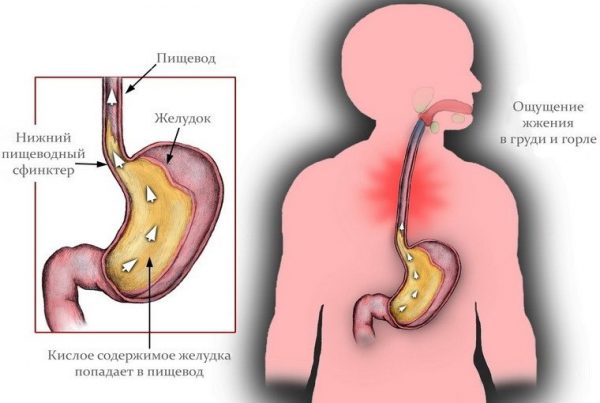
Gradually, the symptoms intensify, there is a constant feeling of fullness, a sour taste in the mouth, and the mucous membrane becomes covered with erosions. An advanced inflammatory process creates all the prerequisites for cancerous tissue degeneration.
Stomach diseases
Unpleasant belching develops against the background of pathological processes in the stomach. Most often, this symptom is accompanied by atrophic gastritis with reduced acidity. Since food cannot be fully digested, it stagnates, provoking putrefactive processes. The situation is aggravated by a decrease in the motor function of the organ and the predominance of fatty foods in the diet.
Stagnation of food also appears when the ulcer localized at the outlet of the stomach becomes scarred. At the site of injury, narrowing appears and motor skills decrease. Food cannot pass fully into the intestines due to this stenosis (narrowing), and therefore the symptom of fullness and belching with a taste of hydrogen sulfide appears.
Pancreas problems
When the gland becomes inflamed, it swells and the secretion of enzymes is impaired. Their lack disrupts the digestion process and leads to its failure. As a result, fermentation processes intensify, stagnation, flatulence occurs, and diarrhea develops.
Unpleasant belching is also considered a sign of pancreatic dysfunction. This is not the only manifestation. The pathologies are accompanied by constant nausea, and diarrhea and vomiting are also observed during an acute attack.
Oncological pathologies
The development of a tumor in the stomach and intestines leads to changes in cells and disruption of their functioning. Stagnation of food, inability to fully digest, decreased or absent peristalsis lead to foul-smelling belching in this disease.
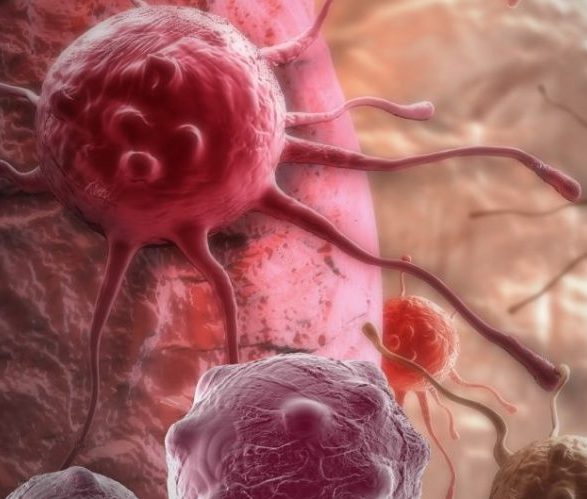
When the stomach is affected, hiccups often occur and last for a long time. Oncological diseases are accompanied by severe asthenic syndrome, anemia, lack of appetite, and signs of intoxication.
Other causes of belching
Belching of rotten eggs and diarrhea occurs due to poisoning. The infectious agent enters the intestines and causes indigestion along with an increase in temperature. With such a disease, there is an increased proliferation of pathogenic flora, which causes decay processes. Nausea, vomiting, bloating and severe pain in the intestines are also noted.
Celiac enteropathy, or grain protein intolerance, may cause belching that smells like sulfur. This happens if a person violates the diet and consumes foods prohibited for this disease: cereals, bread, pastries.
The symptom of belching hydrogen sulfide occurs with dyskinesia of the bile ducts, cholelithiasis, and liver pathology. At the same time, there is a disorder in the stool and a change in its color. When bile stagnates and bilirubin accumulates, the color of the skin changes, and nausea and vomiting are possible.
Burping in a dog
The involuntary reverse movement of gases from the upper parts of the digestive system is commonly called belching. If acidity is disturbed, belching is accompanied by an unpleasant odor, as well as partial regurgitation of food from the stomach or esophagus.
Causes of belching in dogs after eating
Provided the digestive system is functioning normally, gas formation occurs in a volume sufficient to activate gastric motility and peristalsis.
Belching occurs as a result of an increase in gas pressure in the intragastric space.
At the same time, the sphincter separating the esophagus relaxes, the muscles of the sternum sharply contract, as a result of which air escapes into the oral cavity. The animal involuntarily burps during the process.
The most common causes of excessive gas formation are:
- irritation of the lower parts of the esophagus with acidic stomach contents;
- overeating, especially when feeding prohibited fried and smoked foods;
- aeration when swallowing large, unchewed pieces of food;
- impaired motility of the esophagus when a foreign body enters;
- incorrect position of the pet's body when eating;
- physical activity immediately after eating;
- lack of fluid when feeding dry food;
- strengthening of fermentation processes after eating yeast flour products, legumes, eggs or cabbage.
In rare cases, belching is caused by systemic pathologies of the gastrointestinal tract, which are accompanied, among other things, by other symptoms of indigestion.
Frequent belching in dogs
Regular belching indicates a violation of the digestive mechanisms, especially if it occurs some time after feeding.
Possible causes of increased gas formation and frequent belching include:
- congenital or acquired reflux disease caused by insufficient closure of the esophageal sphincter, as a result of which gastric juice damages its lower sections;
- systematic violations of the eating schedule or diet;
- involuntary contractions of the mucous membrane during gastritis or peptic ulcer;
- protrusion of the wall of the esophagus, up to perforation;
- helminth infestation;
- disturbances in the functioning of the pancreas, liver or gall bladder, which are accompanied by increased acidity;
- intestinal obstruction, which produces hydrogen sulfide and ammonia gases, and belching becomes foul-smelling;
- prolonged stress and concomitant stomach neurosis;
- pathologies of the development of the digestive system, internal injuries or diaphragmatic hernia;
- in rare cases of heart disease.
In addition to belching, due to pathologies of the digestive system, your pet may experience the following symptoms:
- increased appetite , or, conversely, its complete absence;
- diarrhea or difficulty defecating , up to prolonged constipation;
- the animal burps mucus and foam
- flatulence, bloating, rumbling;
- increased salivation, nausea, the dog vomits repeatedly;
- change in body temperature;
- general weakness , decreased activity and depressed state of the pet.
If one or more pathological symptoms appear, you should immediately contact a veterinary clinic and diagnose the animal’s condition.
What to do if your dog is burping
In the absence of other symptoms of digestive disorders and maintaining a healthy appetite, it is necessary to take several preventive measures that will prevent relapse and deterioration of well-being.
- Limit the amount of food consumed per feeding . Inexperienced dog owners mistakenly believe that the dog will not eat more than necessary. Due to selection or character, some individuals continue to eat until they feel nauseous or overeating causes vomiting.
- During the recovery period, it is better to increase the fragmentation of the daily diet to 3-4 feedings in small portions.
- To avoid swallowing large pieces, meat can be pre-chopped or frozen. This will force your pet to eat more slowly, chewing each bite thoroughly. There is a way to outsmart your pet if the diet is based on ready-made food: put a large stone or several in a bowl. The dog will be forced to eat more carefully, choosing food around an inedible object.
- You should also carefully monitor what gets into your four-legged pet’s food or simply onto your teeth. Stray pieces of plastic or polyethylene can slow down the flow, damage the esophagus or stomach, or completely block the intestines.
- If your dog is uncomfortable eating from a bowl because it is too small or low, you should replace the dish or purchase a special stand, the height of which can be adjusted according to your pet’s height.
- When feeding dry food, be sure to provide your pet with a sufficient amount of clean drinking water.
- When choosing food, you must carefully study the composition of the finished product and do not purchase mixtures with plant by-products or soy components.
- Dogs on a natural diet will need to adjust their diet for a while, excluding from the diet fatty, difficult-to-digest meats, offal, as well as foods that cause fermentation (peas, cabbage, milk).
You cannot give your dog a soda solution, as a change in the environment will provoke the development of dysbiosis, aggravate damage to the mucous membrane and cause complications. If the pet’s condition worsens, vomiting or diarrhea appears, you should urgently visit a veterinarian and conduct a full examination of the animal.
With a high degree of probability, a blood and urine test, fluoroscopy or x-ray will be required to exclude suspicions of tumor development, as well as to detect a foreign body in the gastrointestinal tract, as well as damage to the mucous membrane of internal organs.
If there are symptoms of worm infestation or intestinal infection, a stool test and deworming will be required. Belching is a particularly common occurrence when parasites multiply in puppies under one year of age . Based on the results, medication and a strict diet will be required.
Source: https://clubsobak.ru/2019/05/11/otryzhka-u-sobaki/
Possible complications
Regurgitation with the smell of hydrogen sulfide in most cases is not a good sign; you should consult a doctor with such a problem. Lack of timely treatment can lead to complications:
- malabsorption in the gastrointestinal tract;
- dysbacteriosis;
- cholecystitis;
- chronic colitis;
- asthenia, vitamin deficiency;
- anemia;
- ulcers with severe pyloric stenosis;
- metabolic disorder, failure of all metabolic processes.
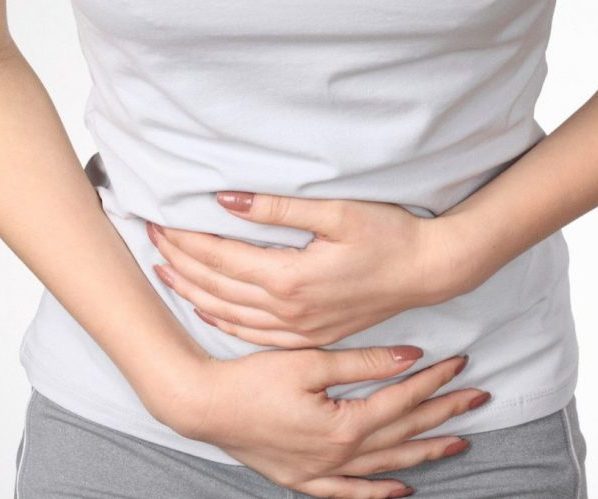
Diagnostic examination
After an initial examination of the dog and collection of anamnesis, the doctor may prescribe a set of diagnostic procedures, which include the following studies:
- blood - general, biochemistry, antibodies to acetylcholine receptor, lead content;
- urine – general;
- endocrine testing (thyroid);
- examination by esophagoscopy (inner surface of the esophagus);
- X-ray of the sternum;
- fluoroscopy;
- X-ray examination of the esophagus using barium;
- muscle biopsy/electromyography.
Diagnostic methods
Belching rotten eggs, accompanied by other symptoms, requires examination and identification of the cause of this phenomenon. For this purpose it is prescribed:
- blood test (general and biochemical);
- stool examination;
- Ultrasound of the abdominal cavity;
- determination of gastric juice acidity;
- FGDS;
- colonoscopy;
- CT or MRI.
The recommended tests are prescribed by the doctor, and he then makes a diagnosis based on the results obtained. Treatment of the disease can be carried out using medications, folk recipes with natural ingredients, and restriction of certain foods.
When to contact a veterinarian
It is necessary to show your pet to a specialist when he burps after almost every feeding. After all, such a phenomenon that appears regularly can signal the development of many pathologies, the treatment of which must be carried out at the earliest stages:
- impaired liver function;
- heart diseases;
- malfunction of the gallbladder;
- hiatal hernia;
- various ailments of the digestive tract;
- gastric neurosis.
Treatment with medications
Rotten egg regurgitation is treated depending on the etiology of this symptom. The main goals of therapy in this case come down to eliminating the cause, restoring the intestinal microflora and relieving discomfort.
In case of poisoning, you need to rinse your stomach. For this purpose, you should take boiled water or a weak soda solution and drink it, then induce vomiting. Activated carbon or Sorbex will help relieve intoxication.
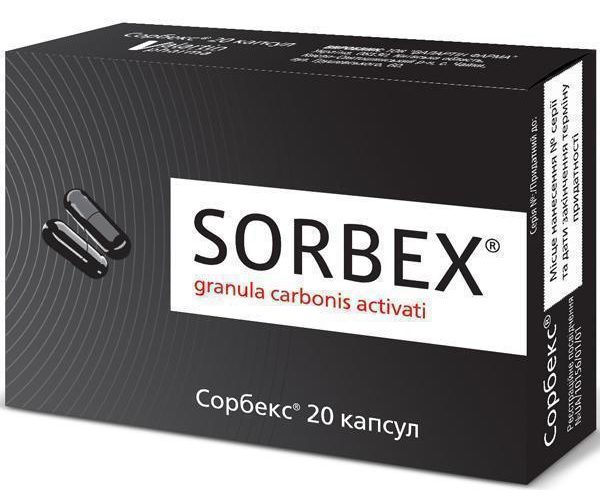
If the patient begins to have diarrhea at the same time, then dehydration is prevented by taking large amounts of clean water and herbal decoctions. You can replenish the loss of salts with the help of Regidron. The temperature is relieved with antipyretic drugs (Paracetamol, Aspirin).
To restore digestion and intestinal microflora, enzymes (Mezim, Pancreatin), as well as probiotics (Enterol, Bifidumbacterin) are used.
In case of an infectious lesion, the factors for the development of the disease are treated with the help of antibiotics. Spasm of the biliary tract should be treated with choleretics and cholekinetics (Holosas, Allochol). Vitamin deficiency and iron deficiency are compensated for by taking vitamins.
For diseases such as pyloric stenosis, cholelithiasis, intestinal tumor or diverticulosis, treatment with medications does not help. The question of carrying out the operation is raised.
Nutritional Features
To relieve the symptoms of foul-smelling belching, you should review your diet. In the acute period, when belching with the smell of sulfur, you need to eat little and often. Food should be easily digestible and not overload the stomach. It is useful to include low-fat fermented milk products (kefir, yogurt, cottage cheese) in the menu.

If you have low acidity during remission, you should drink tea with a slice of lemon. Before meals, compote with lingonberries or rosehip decoction will help improve the condition of the digestive tract. To increase acidity, you can eat grapes on an empty stomach. A mixture of equal parts honey and butter reduces acidity.
Spicy, pickled, fatty and fried dishes, sauces and spices must be excluded.
It is prohibited to drink soda, strong tea and coffee, and alcoholic beverages. Belching should be treated with the simultaneous introduction of natural jelly and compotes from non-acidic fruits into the diet. Lean meat, steamed or boiled, is beneficial. You can cook semolina and rice porridge, pureed soups in vegetable broth.
If the patient is bothered by gases and chronic constipation, in this case the condition can be improved by drinking plenty of fluids and foods high in plant fiber.
Why does burping occur after eating?
There are standard causes for the process in question that are not associated with any diseases. Noticeable belching after eating can occur due to the following factors:
- eating food too quickly;
- insufficient chewing;
- food “on the go”;
- pregnancy;
- excessive physical activity;
- talking while eating;
- strong emotional experiences;
- consumption of carbonated drinks;
- too cold or hot dishes.
Due to these circumstances, a large air bubble forms in the stomach, preventing normal digestion. To instantly reduce blood pressure, the cardiac sphincter opens. This organic structure connects the stomach and esophagus. Excess gas is removed upward into the oral cavity with a characteristic sound and a feeling of relief.
A pathology is considered to be causeless, frequent or constant belching of air after eating - the causes and treatment of this symptom (aerophagia) are determined by a gastroenterologist. The described phenomenon can accompany dangerous diseases: neurotic disorders, diseases of the gastrointestinal tract and esophagus, damage to blood vessels and heart muscles.
Prevention
To prevent unpleasant belching, you must follow these rules:
- seek help in a timely manner if digestive problems arise;
- chew food slowly and thoroughly;
- reduce the volume of meals, eat 5-6 times a day;
- use only high-quality fresh products in your diet.
In order not to harm your health and not provoke belching, you should not snack on the go, and do not eat dry food. After eating, it is useful to move around and not immediately take a horizontal position.
Associated symptoms
If the development of ailments of the digestive system is suspected, belching in a dog is usually accompanied by the following signs of digestive disorders:
- the dog is constantly thirsty;
- dyspeptic symptoms appear;
- gagging/vomiting;
- the occurrence of flatulence;
- heartburn, which can be recognized by whining, inactivity/barking and refusal to eat;
- a characteristic disorder in the form of tarry stools, as well as constipation/diarrhea.



